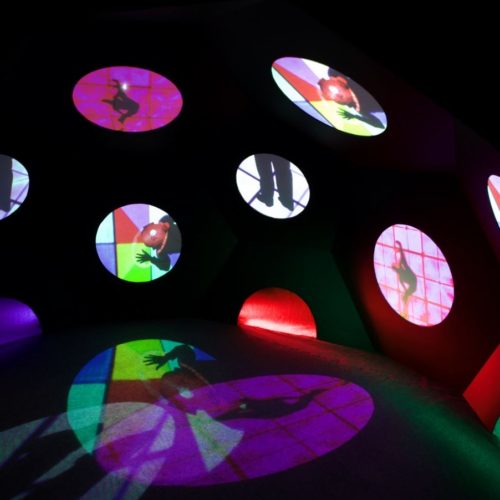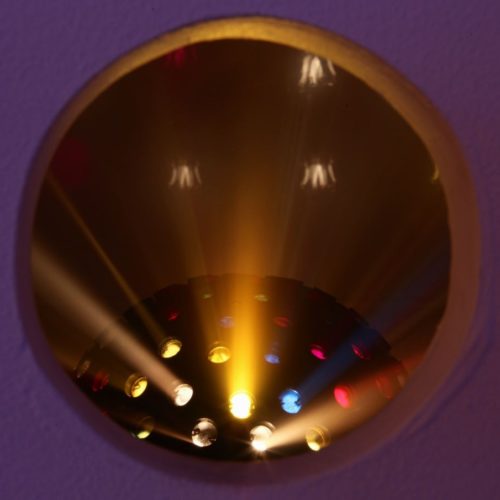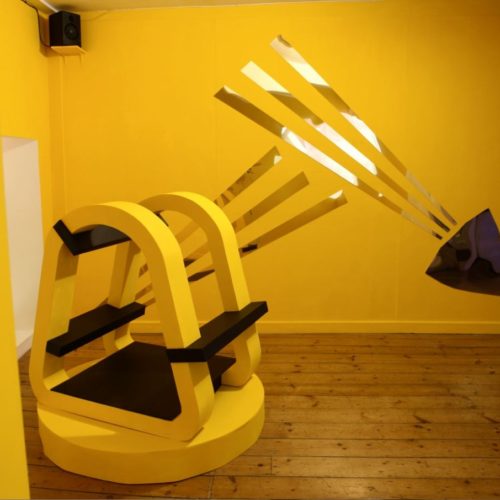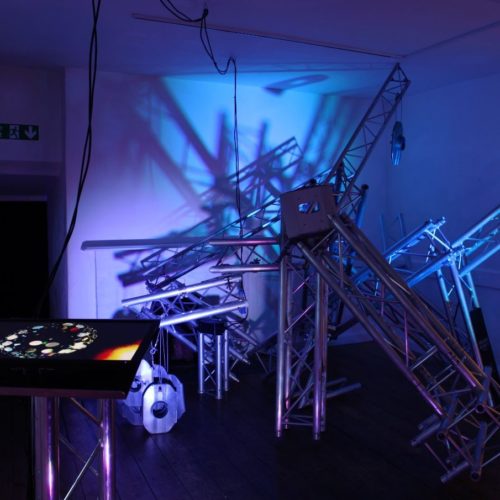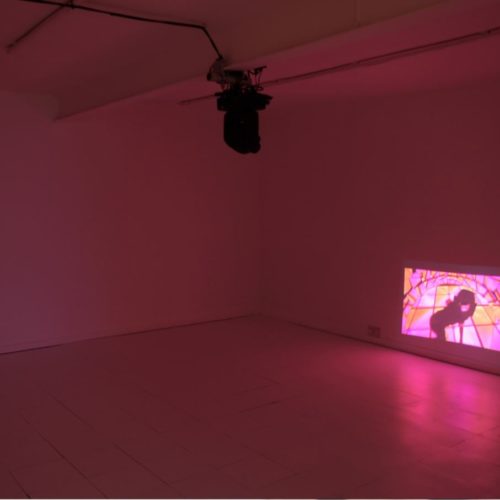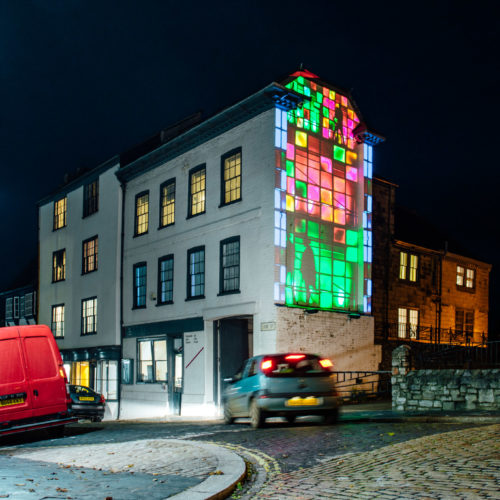Art
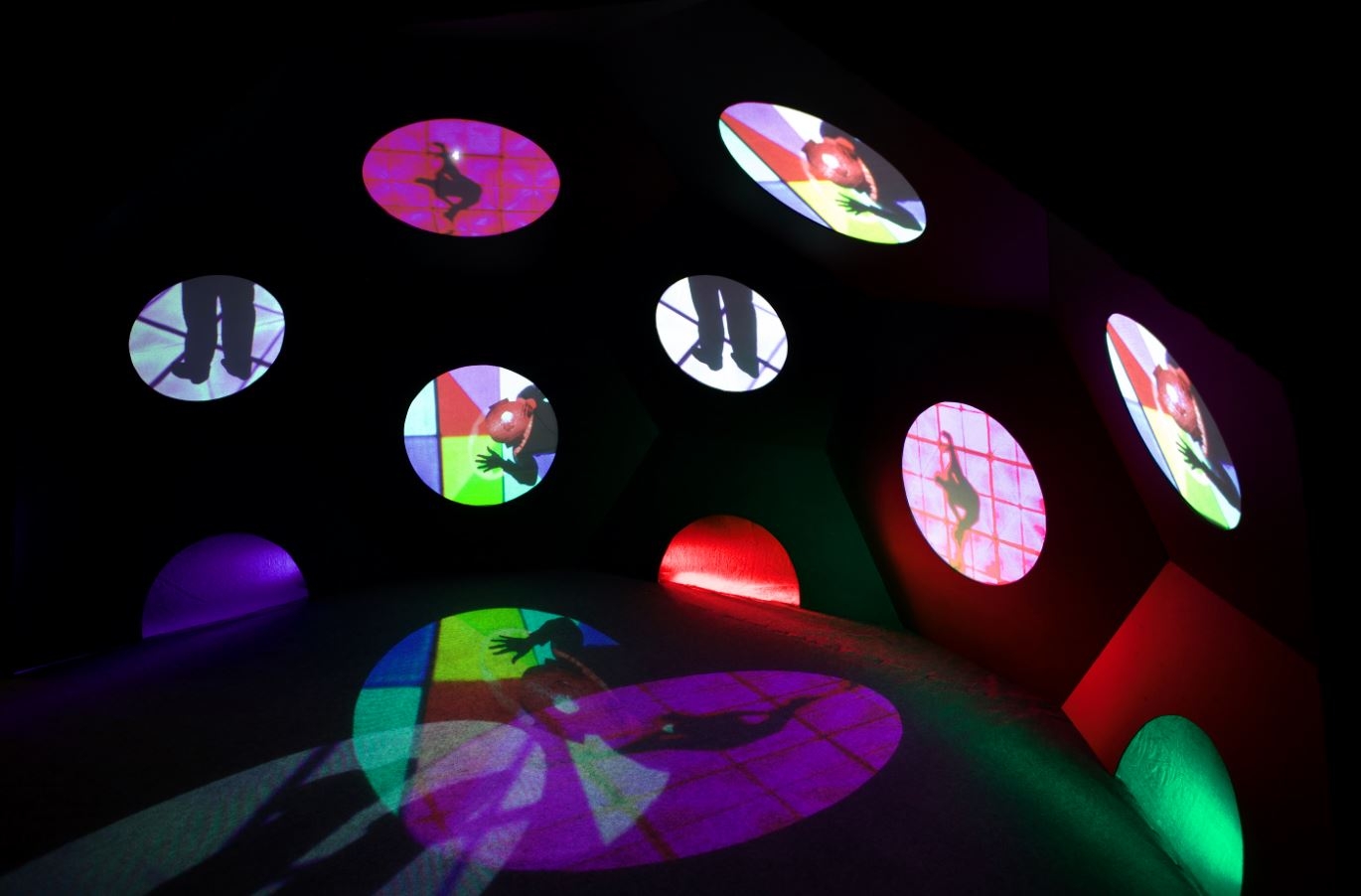
FreeMegan Broadmeadow: Astro Raggi
Welsh artist Megan Broadmeadow lives and works in Bristol. Her immersive installations and sculptural work include combinations of videos, lights and illusions. A graduate of The Slade and Goldsmiths College, Broadmeadow was awarded the 2015–16 Mark Tanner Sculpture Award.
Astro Raggi will illuminate the galleries as Broadmeadow takes us inside the mind and machines of Pasquale Quadri, the Italian inventor who revolutionised the world of disco lighting from his mother’s kitchen table.
Broadmeadow’s installation of sculptural and video works is inspired by disco lights such as the Astro Raggi, AstroDisco, Golden Scan and Sharpy, which were the first to synchronise to rhythms with their extravagant multicoloured beams. They brought a new kind of drama to dancefloors across the world, altering perception and experience and helping reimagine the relationship between music, bodies and architecture.
Pasquale “Paky” Quadri, founder and chairman of Clay Paky, died at his home in Italy in 2014. Earlier that year Pasquale had received the prestigious lifetime achievement prize at the MIPA/PIPA awards for his contribution to the world of disco lighting.
In parallel with Astro Raggi, Plymouth Arts Centre commissioned Broadmeadow’s public artwork All Things of Nothing. Collaborating with dancers to create a film projected onto the outside of Plymouth Arts Centre as part of the third Illuminate Festival, this marks America’s Thanksgiving celebrations. Resembling a giant vertical dancefloor, silhouetted figures scaled the side of our building. This was produced in partnership with Exim Dance Company, Plymouth Dance, Plymouth School of Creative Arts, Plymouth Culture, Advanced Scaffolding Solutions and Adapt Youth Company.
Astro Raggi has been supported by The Elephant Trust
Supported by
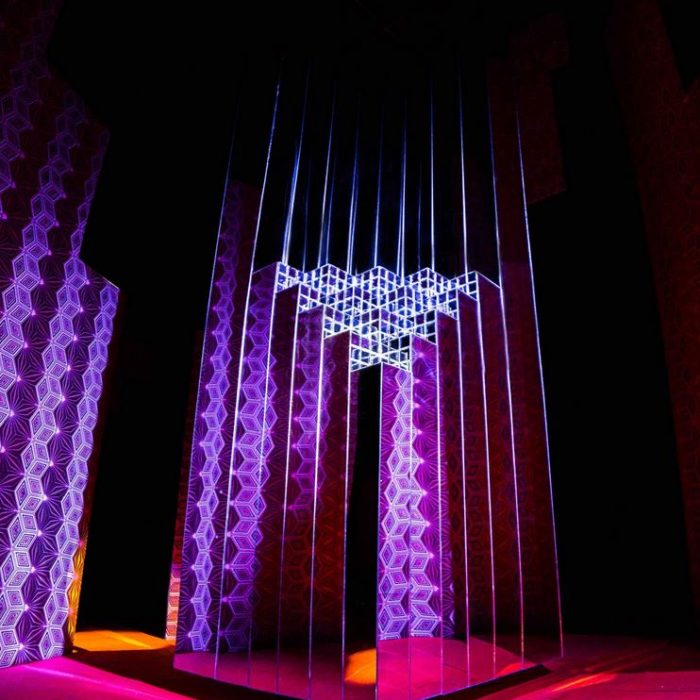
Related Blog Posts
‘In the two years since we commissioned Megan Broadmeadow’s exhibition, her practice and profile have rapidly developed through a number of other projects. This kind of long engagement with an artist’s practice is central to Plymouth Arts Centre’s ethos, allowing ideas to develop in unexpected directions.’

